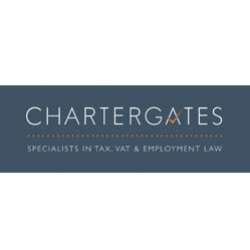How HMRC’s pandemic leniency sparked a tax enquiry for one unlucky self-assessor
For contractors and others, a new First-Tier Tax tribunal judgment sheds light on the complexities of UK tax law and the obligations of both taxpayers and HMRC – even when there’s a pandemic on, writes Naseerah Mussa, a consultant at tax, VAT and employment law firm Chartergates.
In particular, in Josephine Mary Hayes v Revenue & Customs, the validity of an enquiry into Hayes’ 2019/20 tax return was scrutinised. Also scrutinised was her application for closure of the HMRC enquiry, and a request by her for disclosure regarding the origin of the HMRC investigation.
What is Hayes v HMRC about?
The crux of the matter revolved around whether HMRC’s enquiry into Hayes’ tax return was initiated within the statutory time limits, and the extent to which HMRC could request information to verify the accuracy of her reported income and expenses.
Hayes, who represented herself, argued that HMRC’s enquiry was invalid due to an alleged extension of the filing deadline provided in HMRC’s covid-related email communications, which she interpreted as granting additional time to file her return.
What HMRC’s emails stated…
One of those emails stated the following (N.B. the emboldened words appeared in bold in the email as well):
“Earlier this week, HMRC announced that customers will not receive a late filing penalty for completing their 2019-20 tax return after 31 January, as long as they file online by 28 February.
“We are still encouraging customers to file by 31 January, if they can, as this will help to budget and plan for your January payment. You'll still need to pay your Self Assessment tax bill by 31 January.”
A very similar HMRC email, received by Hayes on February 23rd 2021 – five days before she submitted her tax return, stated:
“You will not receive a late filing penalty as long as you file online by 28 February.
“Interest has been charged from 1 February on any outstanding liabilities. You will not be charged a 5% late payment penalty if you pay your tax or make a Time to Pay arrangement by 1 April.”
Hayes’ email argument wasn’t accepted, even though HMRC’s wording was not ‘clear’
However, Judge McGregor dismissed Hayes’ argument that that the purpose of the emails was to give an extra month to file the return (even though the judge said the HMRC emails offering a concession due to the pandemic were not “clear” and not “unambiguous”).
The judge concluded that the HMRC emails merely suspended penalties for late filing due to the pandemic, but did not extend the statutory deadline.
Further objections
Further though, Hayes objected to the breadth of information that HMRC requested, arguing that it encroached upon her privacy and was disproportionate to the nature of her income as a barrister.
Despite her objections, Judge McGregor upheld HMRC’s right to request information to verify tax returns, outlining that the enquiry process allows taxpayers to explain their positions and that the burden of proof lies with the taxpayer to justify their reported figures.
In addition to her application for closure of the enquiry, Hayes sought disclosure of any third-party communications that may have prompted HMRC’s enquiry.
Online harassment
The origin of this request is that Hayes had, over the same time period, been engaged in a dispute that has led to litigation regarding online harassment that she claims she had been subject to. The date from HMRC’s internal systems on which she was selected for an enquiry coincides with the period during which complaints were made about her to various bodies, including her chambers and political party. However, this request was declined by the judge – citing HMRC’s duty of confidentiality and the lack of relevance to the tax tribunal proceedings.
One significant aspect influencing the case was the impact of the pandemic.
HMRC leniency related to (only) penalties
HMRC’s email communications to taxpayers, including Hayes, reflected the unprecedented circumstances of the pandemic, offering leniency in penalties for late filing (usually punishable with a £100 automatic penalty) while maintaining the original self-assessment filing and payment deadline of January 31st.
This distinction underscores the separate obligations associated with self-assessment filing and payment, as failure to meet the deadlines could well trigger a subsequent enquiry from HMRC, regardless of any extensions granted for filing.
Covid challenged both taxpayer and taxman
Therefore, while taxpayers may have been relieved of certain penalties during the coronavirus pandemic, the need for timely tax payments to the Revenue remained paramount. This highlights the challenges that both taxpayers and HMRC alike faced during a time of global crisis.
So while HMRC demonstrated flexibility in response to the economic hardships brought about by the pandemic, it also maintained a duty to uphold compliance and investigate potential discrepancies in tax returns.
Ultimately, in Hayes v HMRC, the judge ruled in favour of the tax authority, finding that its enquiry was validly opened -- and that there were reasonable grounds to keep the enquiry open due to Hayes’ failure to provide requested information.
What does Hayes v HMRC mean for contractors and other self-assessors?
The decision here underscores the importance of compliance with self-assessment returns and the extensive powers of HMRC to investigate an individual's tax affairs.
In addition, the case highlights the intricacies of tax law and the need for taxpayers to diligently fulfil their tax obligations, while also underscoring the authority of HMRC to conduct enquiries to ensure tax compliance.
As contractors navigate the complexities of the UK tax system, cases like Hayes serve as reminders of the legal principles at play and the consequences of non-compliance, especially in the context of global events and challenging times such as the covid-19 pandemic.


